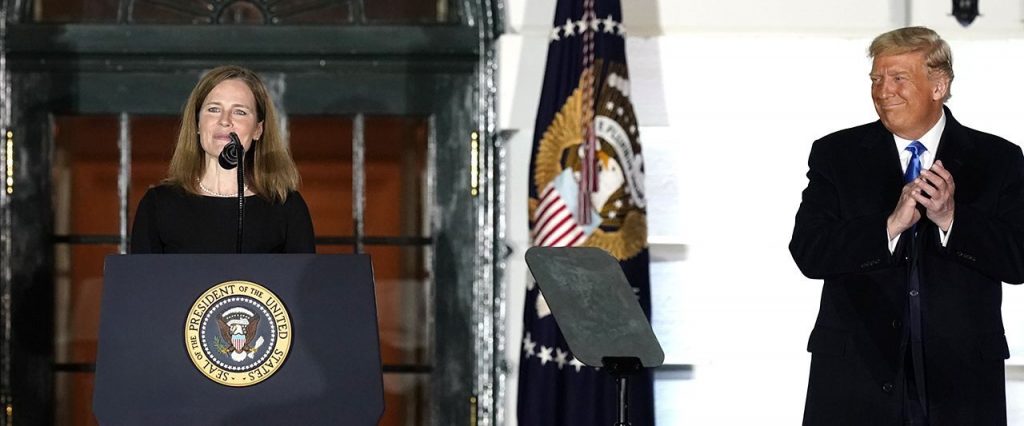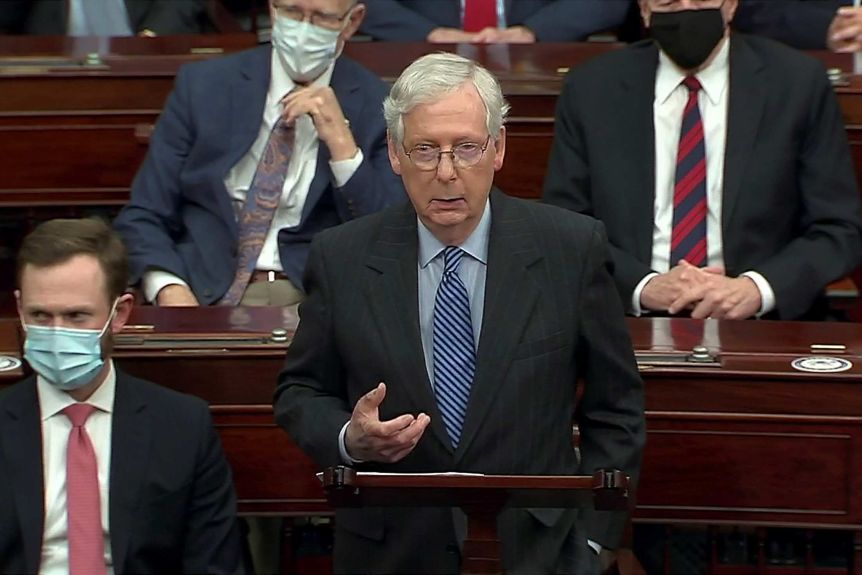
Senate Republicans have confirmed Amy Coney Barrett to the Supreme Court of the United States, securing President Donald Trump’s nominee a week before election day.
Key points:
- The Republican-controlled Senate voted 52-48 to confirm, with only one Republican crossing party lines to vote against
- Democrats were unified in opposition to the vote, arguing it was improperly rushed only a week out from the election
- Judge Barrett fills the vacancy left by Ruth Bader Ginsburg, who died last month

The Senate voted 52-48, largely along party lines, to confirm Judge Barrett to a lifetime post, overcoming unified Democratic opposition and creating a 6-3 conservative majority in the Supreme Court.
Susan Collins of Maine was the only Republican senator to side with the Democrats against confirming Judge Barrett, a federal appeals court judge from Indiana and former academic.
There has never been a confirmation vote this close to a presidential election, and this is the first such vote in modern times to attract no support from the minority party.
Mr Trump’s choice to fill the vacancy left by late liberal icon Ruth Bader Ginsburg potentially opens a new era of rulings on abortion, the Obamacare health law, and even a potential dispute over his own election.

Democrats unified in opposition
Democrats argued for weeks that the vote was being improperly rushed, insisting it should be up to the winner of next week’s election to name the nominee.
Senate Minority Leader Chuck Schumer said the Republican Party was “lighting its credibility on fire” by proceeding with the vote, after blocking Democratic president Barack Obama’s election-year nominee in 2016.
Before the vote, he delivered a sharp condemnation of his colleagues across the aisle.
“You may win this vote, and Amy Coney Barrett may become the next associate justice of the Supreme Court, but you will never get your credibility back,” he said.
But Republican Majority Leader Mitch McConnell defended Barrett’s nomination.
“We don’t have any doubt that if the shoe was on the other foot, they’d be confirming,” he said.
“You can’t win them all, and elections have consequences.”
